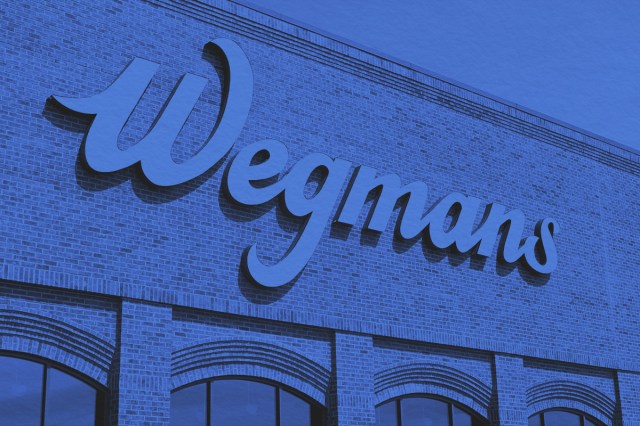
Recently, while I was raving about my favorite grocery store, Wegmans, a friend mentioned that their father grew up in Rochester, New York, with none other than Danny Wegman — third-generation CEO of the supermarket chain. This prompted an interesting question: Does the store name feature an apostrophe? I thought it did, but when I went down a search rabbit hole, prompted by my friend’s story, I noticed it was spelled “Wegmans,” sans apostrophe.
According to traditional grammar rules, if it was intended to show possession by the members of the founding family, the name would technically be Wegmans’ — with an apostrophe after the “s.” Since this East Coast grocery chain is far from the only retail store that’s seemingly missing an apostrophe, I set out to solve this punctuation puzzle.
At the heart of the confusion is a fundamental set of guidelines for apostrophe usage. We covered possessive rules in depth in an earlier edition, but the one at play here concerns plural nouns ending in “s,” for which you just add an apostrophe (as in “Wegmans’,” “books’,” “dogs’”). “Wegmans’” also falls under the category of proper nouns ending in “s,” in which case the rule is the same.
Many other brands — including McDonald’s, Trader Joe’s, Hershey’s, M&M’s, Levi’s, and Lay’s — follow the possessive apostrophe rule for singular proper nouns that don’t end in “s” (add an apostrophe and an “s”). However, brand names don’t always adhere to standard grammar conventions. Think of Tim Hortons, Little Caesars, and Michaels, which also indicate possession without using an apostrophe.
Adding to the confusion, some brand names end with an “s” (or an “s” sound) but don’t require any punctuation, such as Publix, Bealls, Whole Foods, and Sears (originally named Sears, Roebuck and Co.). These brand names don’t need apostrophes because they aren’t meant to be possessive.
Meanwhile, many colloquial versions of brand names blur these lines further by creating possessive nouns out of brand names. Ever heard someone say “Kroger’s,” “Aldi’s,” or “JCPenney’s”? Though these names are commonly used, the stores are actually named “Kroger,” “Aldi,” and “JCPenney.” These regional colloquialisms are especially common in the South and Midwest. Researchers suggest this happens because many brands, particularly those named after founders, follow a possessive-sounding pattern. Stores such as Apple or Target, on the other hand, don’t seem like they should be possessive, so patrons don’t instinctively add an apostrophe to turn them into Apple’s or Target’s.
So what about Wegmans? When the brand was incorporated in 1931, the family opted to drop the apostrophe for one simple reason: a more streamlined logo. This calculated marketing move aimed to make the brand more visually appealing, bucking grammar norms to create a memorable and modern design. Nowadays, adding the apostrophe back into the Wegmans brand name would cost more than half a million dollars in signage and marketing updates — a steep price for a punctuation mark.
Ultimately, while it may seem like an anomaly, the store’s apostrophe-less name is part of the family’s long-standing brand identity. Whether you prefer to say “Wegmans,” “Krogers,” or “Publix,” it’s clear that grammar, branding, and regional traditions play important roles in store naming conventions.

















